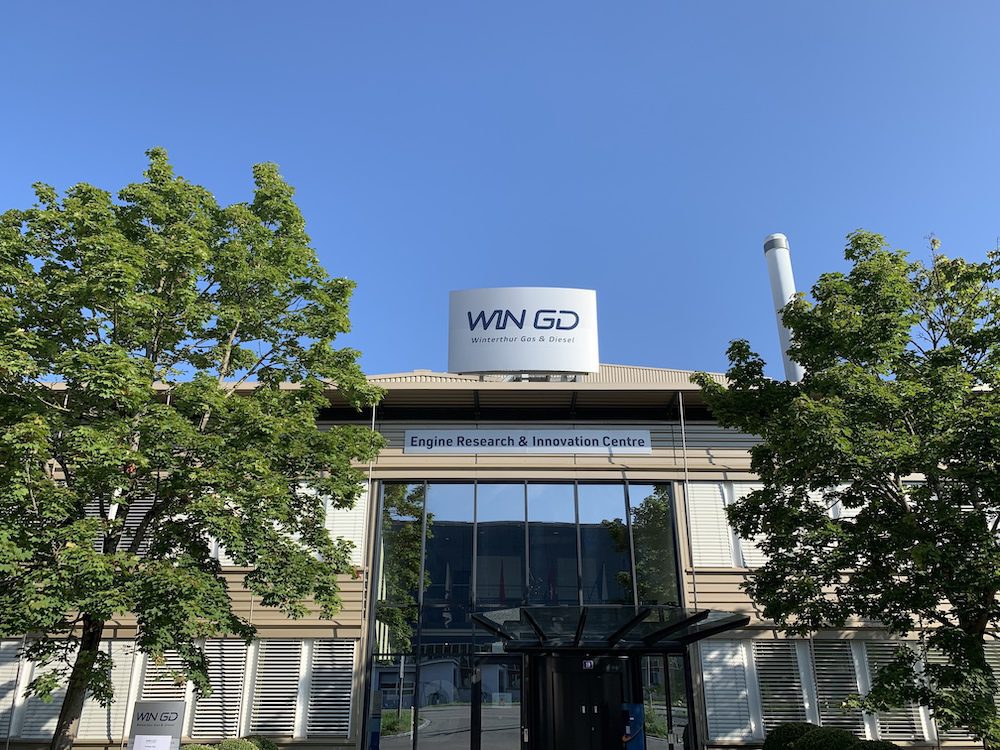ABB to supply integrated power system for nine shuttle tankers
In a major step towards more efficient offshore operations, Samsung Heavy Industries Co., Ltd. (SHI) and ABB have signed an agreement to equip a fleet of shuttle tankers with ABB’s...

Press Release – In support of its strong commitment to a decarbonised future for shipping, engine developer WinGD has outlined the extensive investments it has made in recent years to ensure readiness for next-generation shipping fuels. In a white paper titled ‘Future ready: Extending the engine research toolbox to validate clean shipping fuels’ published today, the company details the engine research toolbox it has amassed, including sophisticated testing facilities for engines and fuel systems, cutting-edge simulation techniques and a proprietary process for validating new ship fuels.
WinGD’s Vice President of R&D, Dominik Schneiter said: “WinGD has successfully analysed a large range of fuels in publicly funded projects and in partnership with industry stakeholders. Our in-depth study into these fuels, combined with significant field experience through our dual-fuel X-DF engines and X-series diesel engines, means that WinGD is prepared to ensure safe and efficient operation with whichever fuels our customers choose on their path to lower emission sailing.”
WinGD has developed fuel systems test rigs designed specifically to assess the compatibility of any alternative liquid fuel with existing fuel systems. These test rigs simulate the actual operation of injection systems in service at relevant conditions. The rigs typically include all key elements of the systems, including a variety of fuel pumps, common rail and injection actuation elements as well as the injection valves.
An additional investment is a single-cylinder engine that allows for optimisation of both dual-fuel Otto and Diesel engine concepts. This set-up is more flexible and cost-effective than the company’s existing multi-cylinder test engines and better suited to early-stage fuel testing. Meanwhile WinGD is also increasing the number of multi-cylinder testbeds with new Diesel-cycle and Otto-cycle engines to improve capabilities in later-stage fuel testing.
Based on the experience accumulated in recent years, WinGD has introduced a robust and transparent fuel validation process. The target of validation is the approval of the fuel for application on WinGD engines.
WinGD’s investments in fuel research complement extensive field experience gained through the X-DF dual-fuel two-stroke engine range, which now features an installed base of more than 415 engines. The range provides a platform for the use of reduced-emission LNG today, giving valuable insight into operation on gas fuels, as well as enabling the use of carbon-neutral fuels tomorrow. For example, customers with X-DF engines will be able to use synthetic and bio methane with no engine modifications when these fuels become available, thus contributing to the reduction of greenhouse gas emissions in shipping in line with IMO’s vision.
The white paper can be downloaded here.

Sign up for gCaptain’s newsletter and never miss an update

Subscribe to gCaptain Daily and stay informed with the latest global maritime and offshore news


Stay informed with the latest maritime and offshore news, delivered daily straight to your inbox
Essential news coupled with the finest maritime content sourced from across the globe.
Sign Up